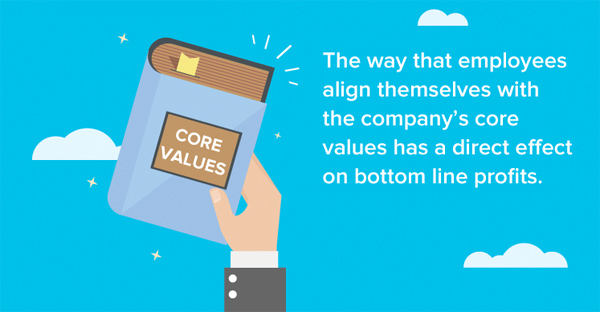
All the reasons that make a talented employee leave their jobs resulted from one of the main two:
1) they are not happy with the current employer,
2) they found a better gig.
But in most cases, it’s a combination of both. So let’s shift our focus from reasons for leaving to motives for staying.
How can employers satisfy the needs of their people? What are the ways companies can meet employees’ expectations and get the most out of their talent in return? Sometimes best employees just go, and there is nothing you can do to prevent it. But you don't want to let them go wondering whether there was something you could have done better...
We have prepared a checklist that covers everything you can do to gain employee satisfaction and loyalty. Make sure to cross them all out before you start wondering what made them leave!
1. Let them use their potential
If you hire an expert, let them apply their expertise. What’s the point of all the effort you invest in finding seniors if you don’t let them use their skills? Many CEOs of companies in transition between startup and mid-level organizations still have a tendency to supervise all departments. Management hires professionals to enable growth, however, they continue to micromanage them which does the opposite.
Good employees like to show their skills. It always takes a certain amount of risk to pass all the trust to a new hire, but where’s the gain without trying it? You’ve already done a great job at candidate selection and recruitment, now let the top talent do their job and allow their experience to take your company to the next level.
 BlogIn is a beautifully simple internal blog and knowledge-sharing platform for teams of all sizes.
BlogIn is a beautifully simple internal blog and knowledge-sharing platform for teams of all sizes.Start 14-day free trial or get more information
2. Recognize their achievements
Employee rewards are not just a generous thing to do. It shows how the outcome people create is valued and emphasizes the way work should be done. But if there are no performance criteria established, the whole rewarding system often gets neglected. Employee recognition should be a tool that reflects company results, boosts contributors’ self-worth, and motivates the entire team to strive in the same direction.
If you have valuable achievers on board, recognize their contribution. This will keep your employees engaged towards goals and motivated to accomplish more. Also, make sure to make everyone eligible for recognition. If the room is available only for a few special ones to be rewarded, you close the door to a potential talent that may never stay long enough to be recognized.

3. Keep them engaged and challenged
If you hire experience, let it be used. Smart people love to be challenged. Don’t exhaust the highest potential for simple tasks. Wasting energy on basic problems will keep talented employees drained for demanding projects. Ordinary is not challenging for smarts. Ordinary is boring, and boredom will push them away. Assign routine to juniors and delegate demanding work to top talent to keep them engaged.
4. Have a vision
Competent people know they can choose, so they rarely settle for less than they deserve. If you don’t offer a promising future, they will quickly find someone else who will. You must have a business vision, a goal you strive to, motives for keeping it going. High achievers need their personal values and goals to align with yours to keep them engaged and productive. Unclear vision means a blurry picture and a type of risk top talented employees don’t want to take.
5. Don’t overwork them
Successful and smart people may love their job, but they are still humans. Maintaining a healthy work-life balance is essential to prevent burnout. Long hours should be avoided at any cost. They are sometimes necessary but make it an occasion, not a habit. Also avoid adding work to employees’ lives outside the office, if that’s not a part of their job description. Mixing job tasks with private activities leave people incapable of being adequately focused on either of the two, which later caused frustration and dissatisfaction. Keep an eye on vacation days and let them all be used by each employee.

6. Provide employee development plan and growth opportunities
Employee development plans support employees' personal and professional growth and help align their competencies with business goals. People are often motivated by self-development and growth opportunities. Naturally, development plans then increase motivation and enhance employee retention.
Employee development helps to extract the best out of employees in order to perform better. It also builds loyalty, and loyalty increases productivity. Driven by self-growth and development while trusting their employer, employees that are provided with such a program are more likely to be happy and stay where they are. Think about it from the start, map out the employee development plan, build a system that will provide it, and comply with the process.
Development plans create a company culture in which learning is supported and nurtured. Led by example, other employees also become motivated to acquire new skills and knowledge and improve their performances.
7. Comply with company culture values consistently
Talented people have a picture of the desired employer and create criteria for choosing one. If your company was their choice, don’t change the environment later. Any inconsistency in values and norms in your organizational culture may result in disappointment. If you don’t stick to building a unique company culture where rules must be respected, you lack leadership skills and trustworthiness. Eventually, your best employees will leave you for someone who predictably meets their expectations and promises a consistent company culture.

8. Don’t lie about earning potentials
Competent people know they can choose, so they rarely settle for less than they deserve. Remember that no lie can stay uncovered for long. If you can’t provide what your best employees expect, don’t promise. You may foresee business going up while unwanted conditions change, but jumping to assumptions is a slippery road to take where consequences are often counterproductive. If you want to earn trust and loyalty from top talent, open and honest communication is the way to go.
9. Be clear about your expectations
Similarly to the above mentioned, always tend to be transparent. Be clear about your expectations of employees. It may seem obvious, but employees that have multiple responsibilities often end up confused about what their role entails. The chaos that arises very soon kills motivation and productivity.
Create a roadmap with desirable milestones and map out a realistic timeline together. In that way, employees will be aware of what you expect them to achieve, and you will have the knowledge about their capabilities of meeting your demands.
10. Give feedback about their performances
Praises, as much as critiques, are crucial in improving the way you do things. Constructive feedback, both positive and negative, serves to navigate towards the direction in which work should be done and increases engagement in people who receive it.
Experienced employees might be aware of their skills, but they need motivation boosters no less than newbies. If they do an excellent job for you, point that out. Highlight their top achievements and motivate them to continue the same path. Similarly, don’t be afraid to stress out outcomes you believe should be done differently. Have an open and honest conversation about their achievements and your expectations and together work on aligning the two in the best way.
11. Give them the freedom to speak their mind
Talented people usually have good thoughts and original ideas. Listening to them will ensure benefits for both of you. They need to be heard, they want to contribute, they are eager to improve the processes. By letting them speak, you’d be surprised how much you can learn.

